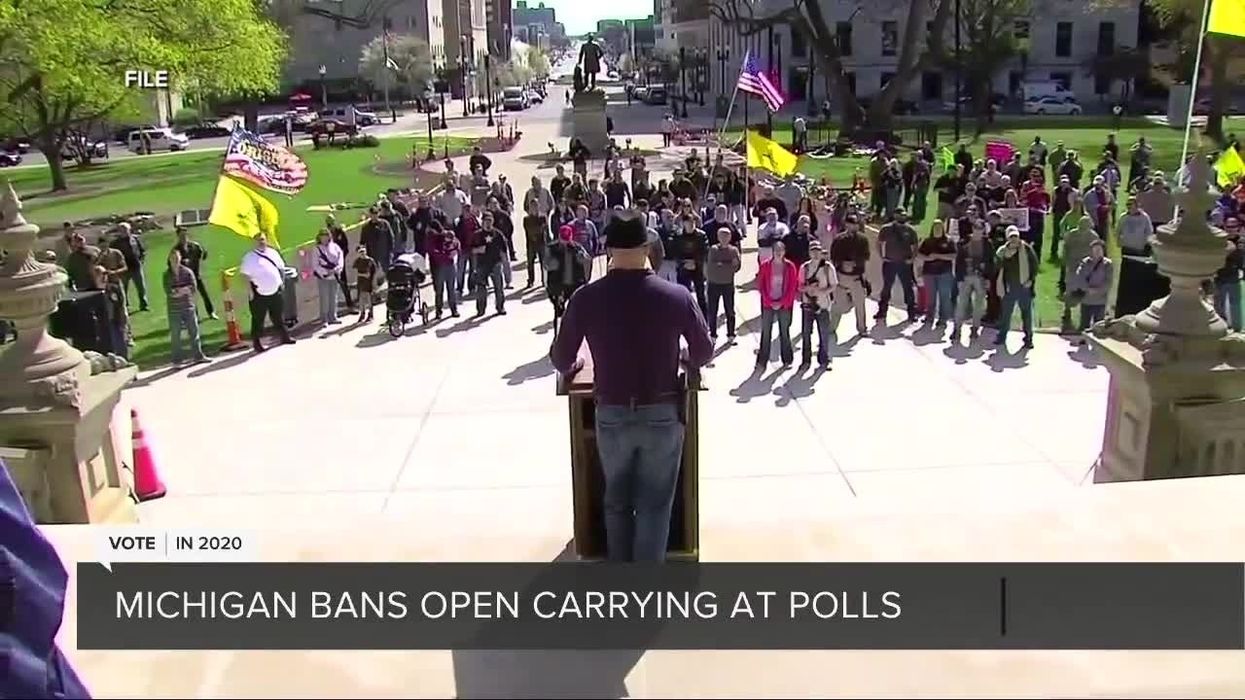There's growing concern across the United States that some overzealous partisans may stake out polling locations to intimidate voters. On live national television, President Trump infamously asked the Proud Boys to "stand back and stand by," a reference some white supremacists took as a call to action. The president's son Donald Trump Jr. has taken to social media to call for an "army for Trump" election-security operation, which would show up in person at polling places to "help us watch" the opposition. Last week, news broke that. Michigan's Democratic governor, Gretchen Whitmer, had been the target of a kidnapping plot among energized militia members.
Intimidating voters is a federal crime, and law enforcement officials around the country are on high alert. While vigilance to ensure that every eligible voter can vote safely is necessary, a visible police presence at the polls would be a serious mistake because it can have the unintended consequence of being intimidating in its own right and suppressing lawful voting.
Here's a better approach:
- Train election officials and poll workers to handle voter intimidation, disruption and baseless challenges in ways that minimize disruption.
- Train law enforcement to respond to any problems with minimal visible presence at the polls. For example, plainclothes police officers in unmarked cars can provide security without intimidating voters.
- Pro-voting poll monitors, whether part of the nonpartisan Election Protection Coalition or associated with campaigns, can help election officials ensure a smooth and efficient voting experience.
- Voters can help, too. If you witness voter intimidation or challenges to any person's right to vote, please report the issue to the nonpartisan Election Protection Coalition at 866-OUR-VOTE.
By following best practices like these, we can work together to make voting safe and efficient. And, in the rare instances where disruptions occur, these best practices can help resolve them quickly and smoothly without creating additional barriers to voting.
Quentin Palfrey is chairman of the Voter Protection Corps. Read more from The Fulcrum's Election Dissection blog or see our full list of contributors.



















